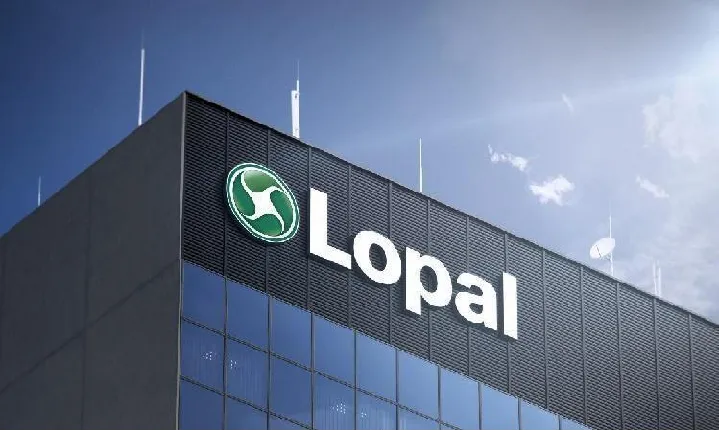- Home
- OFweek News
- LG Energy Solution to Acquire GM's Stake in Michigan Battery Plant for 3 Trillion Won
LG Energy Solution to Acquire GM's Stake in Michigan Battery Plant for 3 Trillion Won
Published: April 07, 2025 10:25
As reported by multiple media outlets on April 1, LG Energy Solution announced plans to acquire General Motors' entire stake in their joint Michigan battery factory for 3 trillion Korean won (approximately 14.91 billion Chinese yuan).

source: LG Energy Solution China
Factory Construction Expected to Resume Quickly
Last December, General Motors announced plans to sell its $1 billion equity stake in the Ultium Cells Lansing battery plant in Michigan to LG Energy Solution. This prompted LG Energy Solution to consider the acquisition and seek new customers.
Ultium Cells was established in December 2019 as a joint venture between General Motors and LG Energy Solution, with each company holding a 50% stake. According to previous plans, Ultium Cells would build three factories with a total planned investment of up to $7.475 billion.
Currently, two factories located in Ohio and Tennessee are already operational. The Ohio factory began full production in 2022 with an annual capacity of 30GWh, potentially expanding to 40GWh. The Tennessee plant, with a planned annual capacity of 50GWh, began production in April 2024 and has delivered its first batch of batteries to customers. These batteries are expected to be used in GM's third-generation electric vehicles, including the Cadillac Lyriq.
Regarding the Lansing battery plant in Michigan that LG Energy Solution will acquire, it was originally planned as Ultium Cells' third joint battery factory. It was scheduled for completion by the end of 2024, with mass production beginning in early 2025 and a planned annual capacity of 50GWh. However, construction was halted in July 2024, and operations stalled further when GM planned to sell its entire stake.
The announcement of the acquisition amount signals that LG Energy Solution's purchase of the Lansing battery plant will be finalized soon, with construction likely to resume promptly.
During negotiations with GM, LG Energy Solution secured new customers for the factory. According to Bloomberg's February 19 report, sources revealed that after GM's withdrawal from the Lansing project, Toyota agreed to transfer a $1.5 billion order with LG Energy Solution to this facility. Additionally, LG Energy Solution plans to sell some of the factory's products to stationary storage customers.
Furthermore, the acquisition includes financial benefits for LG Energy Solution. Since GM and LG Energy Solution received incentive funding for the Lansing factory, GM's exit requires transferring these rewards. On March 25, the Michigan Strategic Fund Board voted to allow LG Energy Solution to become the sole recipient of a $120 million performance grant, along with the obligation to create jobs at the Ultium Cells factory.
Recruiting Talent in China
According to data from Korean research institute SNE Research, global power battery installations reached approximately 894.4GWh in 2024, a 27.2% year-on-year increase. LG Energy Solution ranked third globally with 96.3GWh, growing 1.3% year-on-year and capturing a 10.8% market share. In January this year, LG Energy Solution maintained its global third-place position with 6.0GWh, a 10.1% year-on-year increase and a 9.3% market share.
Despite holding a top-three position, LG Energy Solution faces significant pressure: 2024 installations grew by only 1.3% year-on-year, while 2024 revenue and operating profit decreased by 24.1% and 73.4% respectively.
LG Energy Solution has been proactive in addressing these challenges. Last October, the company unveiled its mid-to-long-term strategy: expanding business from battery manufacturing to energy cycle operations to become a comprehensive solution provider, targeting more than double its 2023 sales (33.75 trillion Korean won) by 2028.
To achieve this, LG Energy Solution will aggressively develop diversified businesses, creating specific mid-to-long-term plans for core business units including automotive batteries, small batteries, and ESS batteries, with North America and Europe as strategic regions.
A key focus is LG Energy Solution's plan to enhance market competitiveness by 2028 through high-voltage mid-nickel prismatic products and dry electrode LFP products, while expanding its 46-series to automakers.
In 2024, LG Energy Solution made significant progress in LFP business development, including securing its first LFP battery order from Ampere for approximately 39GWh and revising an agreement with Lopal Technology's subsidiary to increase LFP cathode materials from 160,000 tons to 260,000 tons.
This year, LG Energy Solution began "recruiting" in China to quickly strengthen its capabilities in the LFP battery sector.
First, it secured LFP material technology support through equity investment. According to Lopal Technology (龙蟠科技 603906.SH,02465.HK)'s February announcement, LG Energy Solution plans to invest approximately $15.9709 million in cash for a 20% stake in Indonesia Lithium Source after its new share issuance. Following the transaction, Indonesia Lithium Source will be 80% controlled by Asia-Pacific Lithium Source and 20% by LG Energy Solution.

source:Lopal Tech.
This evolution from procurement to equity investment not only deepens the cooperation between LG Energy Solution and Lopal Technology but, more importantly, provides LG Energy Solution with first-hand technical support from Lopal Technology, accelerating its LFP battery technology development.
Second, LG Energy Solution recruited key teams from former CATL competitor Tianjin Lishen Battery. According to previous reports by Jiemian News, LG Energy Solution hired approximately 200 core team members from former Lishen Power, covering various functions including R&D, production, and sales, to join LG Energy Solution's Nanjing factory in three batches. In March this year, the first batch of about 20 former Lishen Power employees began working primarily in R&D positions.
Unlike the equity investment in Lopal Technology's subsidiary, LG Energy Solution's recruitment of former Lishen Power's core team better reflects the company's "ambitions." Rather than binding through equity, directly introducing talent networks is seen by the industry as a key strategy to deepen its localization in China and accelerate LFP technology iteration.
Overall, LG Energy Solution aims to accelerate its LFP technology upgrade and reverse its current decline by building a comprehensive competitive advantage through talent networks, innovation ecosystems, and supply chain resilience.
